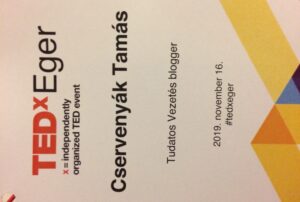Over two thirds of employees are far from being engaged in their jobs. And most of their disappointment is closely related to the way they are managed. Why do leadership development initiatives appear to be so ineffective?
Soft skills can not be developed solely by knowledge transfer. It is totally insufficient to simply know the tools of active listening or be able to enlist the attributes of good quality goal setting. Neither does it help a lot, if you discuss a related case study or participate in a training game designed around those skills. Any of these teaching methodologies can only bring the topic in the limelight and raise the interest of the participants. The next indispensable step, however, is very often missing: how can the manager start practicing these skills systematically in her daily work, and where can she reflect on her related real-life experience? Learning does not typically happen at the training event itself. People develop skills by trying things out, practicing them several times, and if they work out, than there is a chance that they can become habits.
People know that they should be doing more sports to become healthier, more energetic and resilient. It is not the lack of knowledge that keeps them from building good habits around exercising regularly. Where they need help is how they can put that knowledge into practice and following through diligently. For some people, it is enough to buy a sports club membership, while others need appointments with a personal trainer to make sure that they actually turn up. While a calendar entry carved in stone helps some of us, others prefer following up their sports activities in a fitness app to see progress. For certain individuals a friend or a sports companion is the solution. In any case, we need tools or external support to actually turn our knowledge into action that leads to change in our behavior.
So when you design or sponsor a leadership development program for your managers, make sure it is not a one-off event but a process that combines group training elements and individual follow-up activities. In our experience, only half of the budget should be devoted to knowledge transfer or group training events, while the other 50% should support participants to put in practice whatever they find relevant from the training. This can be carried out by short, individual follow-up coaching sessions or alternatively, with digital micro-learning tools.
Act2Manage Application
An interactive, gamification-based, practice-oriented leadership development application that provides immediate help and enables follow-up to the most common dilemmas.







